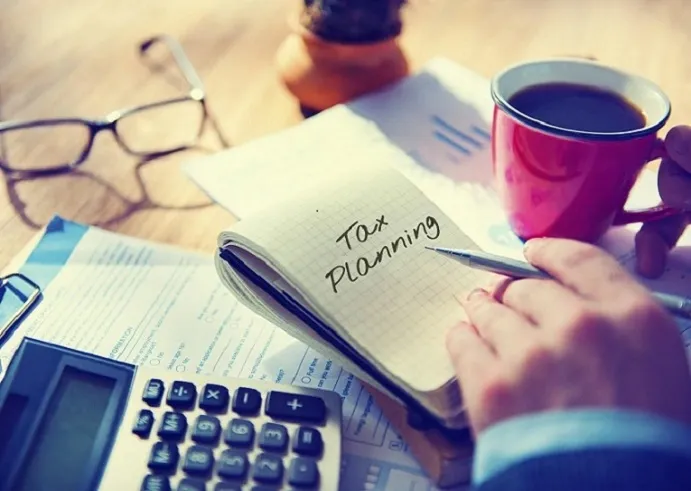- Home>
- Blog>
- Tax-Savings>
- Cess On Income Tax
Trust of 20+ Years in Industry


Written byAbhishek Chakravarti
Taxation & Finance Writer
Published 24th April 2025
Reviewed byAlok Mishra
Last Modified 13th November 2025
Taxation & Finance Expert

What Is Cess on Income Tax?
Cess is an additional tax imposed by the government over and above the regular tax liability to fund specific projects or initiatives. It is levied to finance particular expenditures such as education, healthcare, or infrastructure development. The imposition of cess is typically temporary and aimed at addressing urgent funding requirements for designated projects. In the context of income tax, cess serves as a means for the government to collect revenue for specific purposes outlined in the annual budget.
Types of Cess
There are various types of cess on income tax, each serving a distinct purpose and levied at different rates. Some common types of cess include:
Health and Education Cess
In 2018, the government introduced a health and education cess to address critical healthcare needs and promote quality education. This cess is aimed at funding healthcare infrastructure, public health programs, and educational initiatives simultaneously. The rate of health and education cess is 4% of income tax for individuals and enterprises. The revenue generated from the health and education cess is allocated towards improving healthcare facilities, providing affordable healthcare services, and enhancing educational opportunities for all segments of society.
Road and Infrastructure Cess
Road and Infrastructure cess is levied on income tax to fund infrastructure development projects such as roads, bridges, airports, and railways. This tax is not applicable to two or three-wheelers, electric or hybrid vehicles, etc. Road and infrastructure cess is charged as Re 1 for each litre of high-speed petrol and diesel.
Agricultural Cess
Agricultural cess is imposed on income tax in order to aid agricultural development initiatives and address the challenges faced by farmers. The revenue generated from agricultural cess is allocated towards funding agricultural research, irrigation projects, crop insurance schemes, and other programs aimed at enhancing agricultural productivity and sustainability. Agricultural cess plays a crucial role in supporting the agricultural sector, ensuring food security, and improving the livelihoods of farmers across the country.
Swachh Bharat Cess
Swachh Bharat cess is another type of cess imposed on income tax with the objective of supporting the Swachh Bharat Abhiyan. The government introduced a 0.5% tax on all taxable services to fund this initiative in the year of 2015. This cess is charged over the service tax. The revenue generated from the Swachh Bharat cess is allocated towards funding sanitation projects, promoting cleanliness and hygiene practices, and creating awareness about the importance of sanitation and waste management.
GST Compensation Cess
Taxpayers enrolled under the GST are charged with a GST compensation cess on goods belonging to the luxury or demerit category. However, if you’re enrolled under the GST composition scheme, then you are exempt from it. Also, if you export notified goods only, then you do not have to pay this GST compensation cess.
How Is Cess Different from Tax?
The following points highlight the difference between cess and tax:
- Cess is levied over and above the applicable tax rate.
- Unlike some taxes, which must be distributed proportionately, the cess levied by the central government is not necessarily shared with the states.
- The government can use taxes as it sees fit. However, the use of cess is limited to the stated purpose of collection.
- Compared to general taxes that require revision of existing tax laws, cess is simpler to introduce, change, and abolish.
How to File Cess on Income Tax?
Filing cess on income tax follows the same procedure as filing regular income tax returns. Taxpayers are required to calculate their total tax liability, including cess, based on their taxable income and applicable tax rates. The cess amount is then added to the total tax liability, and the taxpayer must pay the combined amount to the government within the stipulated deadline. The same course applies to the GST compensation cess as well where the eligible taxpayers must login to the GST portal for the very purpose.
Taxpayers can file their income tax returns online through the government's official income tax portal or seek assistance from authorised tax professionals. It is essential to accurately calculate and report the cess amount to avoid penalties or legal implications.
Calculating Cess on Income Tax
The calculation of cess on income tax depends on the applicable cess rate and the taxpayer's total tax liability. Cess is typically calculated as a percentage of the total tax payable after accounting for deductions, exemptions, and other adjustments.
For example, if the applicable education cess rate is 4% and the taxpayer's total tax liability is Rs 50,000, the cess amount would be calculated as follows:
Cess = Total Tax Liability * Cess Rate
= Rs 50,000 x 4%
= Rs 2,000
The taxpayer would then add the cess amount of Rs 2,000 to the total tax liability and remit this combined amount to the government.
FAQs about Cess on Income Tax
What is a cess on income tax?
A cess on income tax is an additional levy imposed by the government to fund specific projects or initiatives such as education, healthcare, or sanitation.
Why is cess charged?
By adhering to the prescribed guidelines for filing and paying cess, taxpayers contribute to the nation's development and welfare initiatives.
ARN: Apr25/Bg/19F
Sources:
https://fi.money/blog/posts/what-is-cess-on-income-tax-the-types
https://cleartax.in/glossary/cess-on-income-tax/
https://cleartax.in/s/cess-on-income-tax
https://www.fibe.in/blogs/what-is-cess-on-income-tax/
https://saral.pro/blogs/cess-on-income-tax/
https://navi.com/blog/what-is-cess/
https://fi.money/blog/posts/what-is-cess-on-income-tax-the-types
https://cleartax.in/glossary/cess-on-income-tax/
https://cleartax.in/s/cess-on-income-tax
https://www.fibe.in/blogs/what-is-cess-on-income-tax/
https://saral.pro/blogs/cess-on-income-tax/
https://navi.com/blog/what-is-cess/
Popular Searches

Online Sales Helpline
- Whatsapp: 7428396005Send ‘Quick Help’ from your registered mobile number
- Phone: 0124 648 890009:30 AM to 06:30 PM
(Monday to Sunday except National Holidays) - service.helpdesk@axismaxlife.comPlease write to us incase of any escalation/feedback/queries.
Customer Service
- Whatsapp: 7428396005Send ‘Hi’ from your registered mobile number
- 1860 120 55779:00 AM to 6:00 PM
(Monday to Saturday) - service.helpdesk@axismaxlife.comPlease write to us incase of any escalation/feedback/queries.
NRI Helpdesk
- +91 11 71025900, +91 11 61329950 (Available 24X7 Monday to Sunday)
- nri.helpdesk@axismaxlife.comPlease write to us incase of any escalation/feedback/queries.








